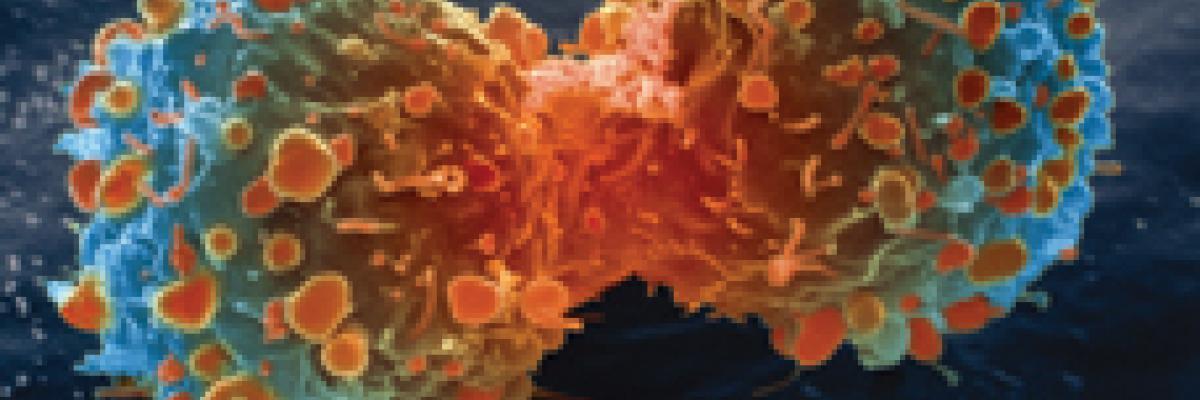Blood test for unstable chromosomes can help predict the return of lung cancer

Lung cancer is the third most common cancer in the UK in both men and women, accounting for more than 35,000 deaths in 2014. Cancer research has shown increasingly that cells whose chromosomes double, are unstable or undergo mutation are more likely to multiply rapidly, to spread to other parts of the body, and to develop resistance to drug treatment.
Since 2014, patients due to have an operation to remove a non-small-cell lung cancer have been invited take part in a large multicentre UK study called TRACERx that is funded largely by Cancer Research UK. It aims to recruit more than 850 patients to study in detail the distribution of chromosome alterations in their lung cancer cells and how the ways that cells change over time are related to tumour progression and the success of chemotherapy.
The results of DNA sequencing of the early stage non-small-cell lung cancers removed from 100 patients were reported in the New England Journal of Medicine online on 26 April 2017. Multiple regions of each tumour were studied. It was found that patients whose tumours had a high proportion of unstable chromosomes were over four times more likely to have a recurrence within two years.
The researchers reported online in Nature on the same day their investigation of tumour DNA in stored blood samples taken from the 100 patients before and at intervals after operation. From each patient’s tumour a personalised polymerase chain reaction reagent was prepared that could detect the tiny amounts of DNA released from the tumour into blood. Concentrations of circulating tumour DNA dropped rapidly after operation, but subsequently increased in those whose tumour recurred. Concentrations rose up to a year before a CT scan showed clinical evidence of recurrence. A blind study of the circulating tumour DNA results in 14 patients who had relapsed and 10 patients who had been relapse-free for nearly two years found that it was possible to predict with 92% accuracy which patients would relapse within 350 days.
Professor Charles Swanton, Consultant Oncologist and Chief Investigator of the TRACERx study, based at the Francis Crick Institute in London, told the BBC: "We can now set up clinical trials to ask the fundamental question - if you treat people's disease when there's no evidence of cancer on a CT scan or a chest X-ray can we increase the cure rate? We hope that by treating the disease when there are very few cells in the body that we'll be able to increase the chance of curing a patient."

